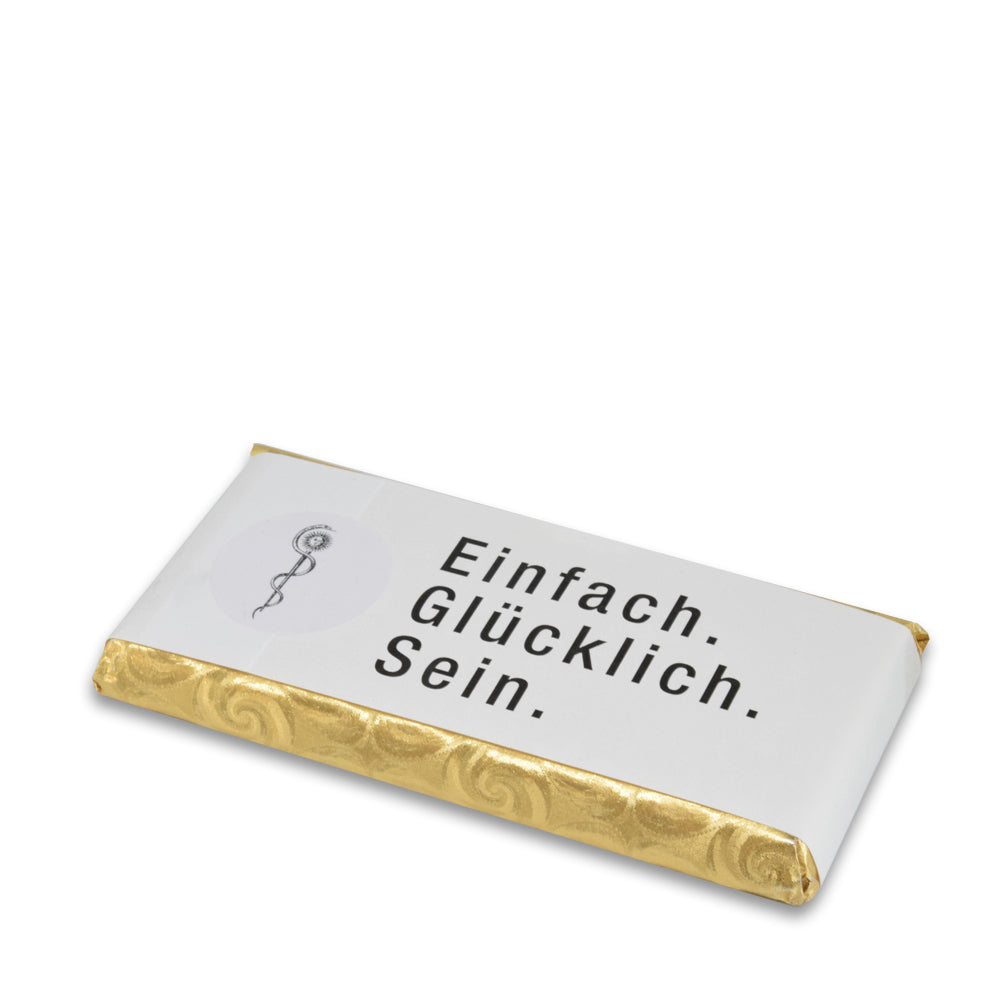
top-geschenk
Regular price€ 8,80
/
Bio
Quantity: 70 g
(
€ 12,57 / 100 g)
Tax included.
Shipping calculated at checkout.
-
 50,000+ happy customers | ★★★★★ rating
50,000+ happy customers | ★★★★★ rating
-
 Premium pharmacy quality from Vienna
Premium pharmacy quality from Vienna
-
 Stores in Germany and Austria
Stores in Germany and Austria
-
 Free shipping from €60
Free shipping from €60
-
 Free returns
Free returns
-
 BCorp-certified for sustainability & social standards
BCorp-certified for sustainability & social standards
Handmade honey-propolis-choccies, a natural product from Austria. Pure Austrian propolis lends the fine dark chocolate its spicy-resinous notes. The combination of fine cocoa from Trinidad, Arriba and Venezuela and organic fir honey make our unique honey-propolis-choccies the delicious delicacies they are.
*Peru fine dark chocolate with at least 70% cocoa ingredients (*cocoa mass, *cocoa butter, *cane sugar), *butter, *honey, *milk, 100% *natural propolis 0.2 g/bar, *glucose syrup, salt.
*From controlled organic farming.
| Nährwertangaben | Pro 100g |
| Brennwert | 2.483 Kj / 599 Kcal |
| Fett | 45,4 g |
| davon gesättigte Fettsäuren | 28,4 g |
| Kohlehydrate | 32 g |
| davon Zucker | 26,9 g |
| Eiweiß | 7,7 g |
| Salz | 0,2 g |
Lagerung: Vor Wärme geschützt lagern. Durch übermäßige Erwärmung kann Kakaobutter an die Oberfläche treten. Der entstehende Grauschleier an der Schokoladenoberfläche beeinträchtigt in keiner Weise die Qualität.











 50,000+ happy customers | ★★★★★ rating
50,000+ happy customers | ★★★★★ rating
 Premium pharmacy quality from Vienna
Premium pharmacy quality from Vienna
 Stores in Germany and Austria
Stores in Germany and Austria
 Free shipping from €60
Free shipping from €60
 Free returns
Free returns
 BCorp-certified for sustainability & social standards
BCorp-certified for sustainability & social standards




